Facebook is a social media and networking service created in 2004 by Mark Zuckerberg and his Harvard College roommates. Initially limited to Harvard students, it expanded to include other universities and eventually opened registration to anyone 13 years and older (with exceptions). As of December 2023, Facebook reported almost 3.07 billion monthly active users globally. By November 2024, it ranked as the third-most-visited website worldwide, with a significant portion of its traffic originating from the United States. Facebook was also the most downloaded mobile app of the 2010s.
2000: Phillips Exeter Project
In the early 2000s, while attending Phillips Exeter, Mark Zuckerberg collaborated with Kris Tillery, who created a school-based social networking project called Photo Address Book, a digital face book.
2003: Facemash Creation
In 2003, while attending Harvard University, Mark Zuckerberg built a website called "Facemash", which compared photos from online face books and asked users to choose the 'hotter' person.
January 2004: TheFacebook Conception
In January 2004, Mark Zuckerberg began coding a new site known as "TheFacebook", recognizing the availability of technology for a centralized website.
February 4, 2004: TheFacebook Launch
On February 4, 2004, Mark Zuckerberg launched "TheFacebook" after securing investment from Harvard student Eduardo Saverin.
2004: Site Expansion and Leadership Changes
In 2004, Dustin Moskovitz, Andrew McCollum, and Chris Hughes joined Zuckerberg to manage Facebook's growth. The site became available to most universities in the US and Canada, Sean Parker became company president, and the company moved to Palo Alto, California.
2004: Facebook Creation
In 2004, Mark Zuckerberg, along with Eduardo Saverin, Andrew McCollum, Dustin Moskovitz, and Chris Hughes, created Facebook, initially limited to Harvard students.
2004: Litigation regarding HarvardConnection social network
In 2004, allegations arose that Zuckerberg broke an oral contract with Cameron Winklevoss, Tyler Winklevoss, and Divya Narendra to build the then-named "HarvardConnection" social network, leading to litigation.
2005: Domain Name Acquisition
In 2005, Facebook dropped "the" from its name after purchasing the domain name Facebook.com.
2006: Photo Tagging Feature
In 2006, Facebook developed the photo tagging feature, which allows users to tag, or label, friends in a photo.
2006: Public Registration
In 2006, Facebook opened registration to everyone 13 years and older, except in a few nations where the age requirement is 14.
2006: Public Access and News Feed Introduction
In 2006, Facebook opened to everyone at least 13 years old with a valid email address and introduced key features like the News Feed.
2007: Colorblindness Realization
Around 2007, Mark Zuckerberg realized he is red-green colorblind, influencing Facebook's primary color choice of blue.
2007: Growth and Microsoft Investment
By late 2007, Facebook had 100,000 pages for company promotion, surpassing MySpace in global traffic. Microsoft purchased a 1.6% share of Facebook for $240 million, valuing Facebook at around $15 billion.
2007: Facebook Pages Launch
In 2007, Facebook launched Facebook Pages for brands and celebrities to interact with their fanbases, with 100,000 Pages launching in November.
January 2008: Facebook partners with ABC and Saint Anselm College for debate feedback
In January 2008, shortly before the New Hampshire primary, Facebook teamed up with ABC and Saint Anselm College to allow users to give live feedback about the Republican and Democratic debates on January 5. Users participated in debate groups on specific topics, voter registration, and message questions.
February 2008: Facebook group organizes protest against FARC
In February 2008, a Facebook group called "One Million Voices Against FARC" organized an event in which hundreds of thousands of Colombians marched in protest against the Revolutionary Armed Forces of Colombia (FARC).
2008: Experimentation with social media in politics
By 2008, politicians and interest groups were experimenting with the systematic use of social media, such as Facebook and Twitter, to spread their message. A CBS News poll claimed to illustrate how the "Facebook effect" had affected youthful voters. Over a million people installed the Facebook application "US Politics on Facebook".
2008: Facebook Chat Initial Launch
In 2008, Facebook Chat was initially launched, marking the beginning of what would later become Facebook Messenger.
2008: Facebook Reaches 100 Million Users
In 2008, Facebook reached 100 million registered users.
2008: "Facebook" declared Word of the Year by Collins English Dictionary
In 2008, the Collins English Dictionary declared "Facebook" as its new Word of the Year, marking its growing cultural significance.
2008: User Under 34 Percentage
Over the 2008–2018 period, the percentage of users under 34 declined to less than half of the total.
February 9, 2009: "Like" Button Introduction
On February 9, 2009, Facebook first enabled the "like" button, stylized as a "thumbs up" icon.
June 2009: Usernames Feature Introduction
In June 2009, Facebook introduced a "Usernames" feature, allowing users to choose a unique nickname for their profile URL.
December 2009: "Unfriend" declared Word of the Year by New Oxford American Dictionary
In December 2009, the New Oxford American Dictionary declared its word of the year to be the verb "unfriend", defined as removing someone as a 'friend' on a social networking site such as Facebook.
2009: Yuri Milner befriended Zuckerberg
Between 2009 and 2011, Russian-American billionaire Yuri Milner befriended Zuckerberg and had Kremlin backing for his investments in Facebook and Twitter.
2009: Facebook Joins PRISM Program
Since 2009, Facebook has been participating in the PRISM secret program, sharing user data with the US National Security Agency.
February 23, 2010: News Feed Patent
On February 23, 2010, Facebook was granted a patent on certain aspects of its News Feed.
May 2010: Zuckerberg apologizes for discrepancies in privacy settings
In May 2010, Mark Zuckerberg apologized for discrepancies in Facebook's privacy settings.
June 2010: "Like" Button Extended to Comments
In June 2010, the "like" button was extended to comments on Facebook.
July 2010: Facebook Reaches 500 Million Users
In July 2010, Facebook announced it had reached 500 million registered users, with half using the site daily for an average of 34 minutes, and 150 million accessing it via mobile devices.
August 2010: North Korean government joins Facebook
In August 2010, one of North Korea's official government websites and the country's official news agency, Uriminzokkiri, joined Facebook.
2010: Facebook Chat Revamp
In 2010, Facebook Chat underwent a revamp, improving the service before it eventually became the standalone mobile app, Facebook Messenger.
2010: Facebook makes privacy settings more difficult for third party access
In 2010, Facebook consolidated its privacy settings onto one page to make it more difficult for third-party apps to access user's personal information. Facebook also committed to reviewing and auditing thousands of apps displaying "suspicious activities".
2010: Release of "The Social Network" film
In 2010, the film "The Social Network", directed by David Fincher and written by Aaron Sorkin, was released, starring Jesse Eisenberg as Mark Zuckerberg. The film went on to win three Academy Awards and four Golden Globes.
January 2011: HTTPS Upgrade
In January 2011, Facebook upgraded its site from HTTP to the more secure HTTPS.
February 14, 2011: Bahraini regime uses Facebook to identify protesters
In a Bahraini uprising that started on February 14, 2011, Facebook was utilized by the Bahraini regime and regime loyalists to identify, capture, and prosecute citizens involved in the protests. Additionally, in 2011, Facebook filed paperwork to form a political action committee under the name FB PAC.
July 29, 2011: Facebook Bug Bounty Program Launch
On July 29, 2011, Facebook introduced its Bug Bounty Program, offering security researchers a minimum of $500 for reporting security vulnerabilities, and promising not to pursue "white hat" hackers.
August 2011: Standalone Messenger Mobile App Launch
In August 2011, Facebook launched a standalone mobile app for Facebook Messenger, which had originated as Facebook Chat.
September 2011: Timeline Revamp
In September 2011, Facebook revamped the format of individual user pages, introducing "Timeline", a chronological feed of a user's stories.
November 29, 2011: Facebook Settles FTC Charges for Deceiving Consumers
On November 29, 2011, Facebook settled Federal Trade Commission charges that it deceived consumers by failing to keep privacy promises.
2011: Yuri Milner befriended Zuckerberg
Between 2009 and 2011, Russian-American billionaire Yuri Milner befriended Zuckerberg and had Kremlin backing for his investments in Facebook and Twitter.
2011: Facebook's role in the Egyptian revolution
During the Arab Spring, many journalists claimed Facebook played a major role in the 2011 Egyptian revolution. The Facebook page of "We are all Khaled Said" was started by Wael Ghoniem to invite Egyptians to "peaceful demonstrations" on January 25. Facebook became a primary tool for connecting protesters, leading to a ban, and ultimately, President Hosni Mubarak's resignation after 18 days.
2011: App development platform added 182,000 US jobs
In 2011, an econometric analysis found that Facebook's app development platform added more than 182,000 jobs in the U.S. economy.
2011: Photo Tagging Patent
In 2011, the photo tagging feature developed by Aaron Sittig and Scott Marlette back in 2006 was granted a patent.
June 7, 2012: App Center Launch
On June 7, 2012, Facebook launched its App Center to help users find games and other applications.
October 2012: Facebook Exceeds One Billion Monthly Active Users
In October 2012, Facebook announced that its monthly active users had surpassed one billion, including 600 million mobile users, with 219 billion photos uploaded and 140 billion friend connections.
2012: Monolithic Application Development
According to an interview in 2012, Facebook is developed as one monolithic application which compiles into a 1.5 GB binary blob and is distributed to the servers.
2012: Facebook encourages users to vote
In 2012, Facebook conducted an experiment showing users pictures of friends who had voted, resulting in a 2% increase in voting among those shown the pictures compared to a control group.
2012: Initial Public Offering and Instagram Acquisition
In 2012, Facebook went public with one of the largest IPOs in tech history. It also purchased Instagram.
August 2013: Facebook founds Internet.org
In August 2013, Facebook founded Internet.org in collaboration with six other technology companies to provide affordable Internet access for underdeveloped and developing countries.
August 2013: High-Tech Bridge Study on Facebook Messaging Link Access
In August 2013, High-Tech Bridge published a study showing that links included in Facebook messaging service messages were being accessed by Facebook.
January 2014: Lawsuit Filed Against Facebook for Privacy Violation
In January 2014, two users filed a lawsuit against Facebook alleging that their privacy had been violated by Facebook accessing links in their messages.
February 2014: Expanded Gender Settings
In February 2014, Facebook expanded the gender setting, adding a custom input field for users to choose from a wide range of gender identities.
March 20, 2014: Hack Programming Language Announcement
On March 20, 2014, Facebook announced a new open-source programming language called Hack.
May 2014: Ask Feature Introduction
In May 2014, Facebook introduced a feature to allow users to ask for information not disclosed by other users on their profiles.
2014: WhatsApp and Oculus VR Acquisition
In 2014, Facebook purchased WhatsApp and Oculus VR, expanding its influence into messaging and virtual reality.

2014: Facebook Data Leak of Millions of People
You may have heard about a quiz app built by a university researcher that leaked Facebook data of millions of people in 2014.
May 13, 2015: Instant Articles Launch
On May 13, 2015, Facebook in association with major news portals launched "Instant Articles" to provide news on the Facebook news feed without leaving the site.
June 2015: Russian ad spending on Facebook
From June 2015 to May 2017, Facebook found approximately $100,000 in ad spending associated with roughly 3,000 ads connected to about 470 inauthentic accounts and Pages in violation of our policies. These accounts and Pages were affiliated with one another and likely operated out of Russia.
November 2015: Facebook Changes Definition of "Monthly Active Users"
In November 2015, Facebook changed its definition of "monthly active users" to logged-in members visiting the site or using the Facebook Messenger app within the 30-day period prior to the measurement, excluding third-party services with Facebook integration.
2015: Facebook Usage Among Younger Americans
As of 2015, 58% of U.S. users aged 12-34 were Facebook users.
2015: Accusations of enabling Rohingya refugee crisis
Facebook has been accused of amplifying the reach of 'fake news' and extreme viewpoints, as when it may have enabled conditions which led to the 2015 Rohingya refugee crisis.
February 2016: "Reactions" Expansion
In February 2016, Facebook expanded the "Like" button into "Reactions", allowing users to choose from five pre-defined emotions.
April 2016: Start date for Quebec class action lawsuit regarding discriminatory ad targeting
A class action lawsuit in Quebec, approved on December 22, 2022, could include thousands of Quebec residents who have been using Facebook as early as April 2016, who were seeking jobs or housing during that period, due to discriminatory advertising under the Unruh Civil Rights Act.
2016: Estimated 44% of Americans get news through Facebook
As of 2016, it was estimated that 44% of Americans get their news through Facebook.
2016: Russian ad spending on Facebook before US presidential election
Before the 2016 United States presidential election, Facebook sold more than $100,000 worth of ads to a company with links to the Russian intelligence community. Clinton and Trump campaigns spent $81 million on Facebook ads.
2016: Political advertising becomes normalized
By the 2016 election, political advertising to specific groups had become normalized, with Facebook offering the most sophisticated targeting and analytics platform. ProPublica noted that their system enabled advertisers to direct their pitches to almost 2,300 people who expressed interest in the topics of "Jew hater", "How to burn Jews", or, "History of 'why Jews ruin the world".
2016: Facebook's Role in Russian Interference in the 2016 United States Elections
Historically, commentators have offered predictions of Facebook's role in Russian interference in the 2016 United States elections.
2016: U.S. Elections Controversy
In 2016, Facebook faced criticism regarding political manipulation during the U.S. elections.
2016: Russian interference in US elections
In 2016, Facebook was used by political operatives for activities such as "coordinated inauthentic behavior", support or attacks which violated platform policies. The Russian interference in the 2016 United States elections became a known event.
2016: Robert Mueller indicted Russian nationals and organizations
In 2018, Special Counsel Robert Mueller indicted 13 Russian nationals and three Russian organizations for "engaging in operations to interfere with U.S. political and electoral processes, including the 2016 presidential election."
2016: Facebook's Project Ghostbusters
In March 2024, a court in California released documents detailing Facebook's 2016 "Project Ghostbusters", aimed at competing with Snapchat.
2016: Zuckerberg regretted dismissing concerns over Russian interference
Russian operatives used Facebook to polarize the American public discourses, organizing rallies and exploiting divisions. Zuckerberg stated that he regrets having dismissed concerns over Russian interference in the 2016 U.S. presidential election.
January 2017: Facebook Stories Launch
In January 2017, Facebook launched Facebook Stories for iOS and Android in Ireland, allowing users to upload photos and videos that disappear after 24 hours.
May 2017: Russian ad spending on Facebook
From June 2015 to May 2017, Facebook found approximately $100,000 in ad spending associated with roughly 3,000 ads connected to about 470 inauthentic accounts and Pages in violation of our policies. These accounts and Pages were affiliated with one another and likely operated out of Russia.
June 2017: Facebook Crosses Two Billion Users
In June 2017, Facebook reached the milestone of 2 billion users.
July 2017: Facebook security breach begins
In July 2017, a major security breach on Facebook began, which would later be discovered on September 16, 2018 and exposed on September 28, 2018.
September 2017: InfoWars fact-checking cases
In September 2017, Facebook provided only six cases in which it fact-checked content on the InfoWars page.
September 2017: Facebook found ad spending from inauthentic accounts
In September 2017, Facebook's chief security officer Alex Stamos wrote the company "found approximately $100,000 in ad spending from June 2015 to May 2017 – associated with roughly 3,000 ads – that was connected to about 470 inauthentic accounts and Pages in violation of our policies. Our analysis suggests these accounts and Pages were affiliated with one another and likely operated out of Russia."
October 11, 2017: 3D Posts Feature Introduction
On October 11, 2017, Facebook introduced the 3D Posts feature, allowing for uploading interactive 3D assets.
December 2017: Company highlights research on 'passively consuming' the News Feed
In a blog post in December 2017, Facebook highlighted research that showed "passively consuming" the News Feed left users with negative feelings, whereas interacting with messages pointed to improvements in well-being.
2017: Decline in Facebook Usage Among U.S. Population
From 2017, Facebook experienced a decline in usage among the U.S. population over the age of 12, dropping from 67% to 61%.
2017: Messenger Updates: "Messenger Day", Reactions and Mentions
In 2017, Facebook added new features to Messenger: "Messenger Day" for sharing disappearing photos and videos, Reactions for emoji responses, and Mentions for user notifications in group conversations.
2017: Facebook partners with fact checkers
In 2017, Facebook partnered with fact checkers from the Poynter Institute's international fact-checking network to identify and mark false content.
2017: Disinformation campaign during the United States Senate special election in Alabama
In 2017, Jonathon Morgan and others engaged in an operation to spread disinformation on Facebook and Twitter during the United States Senate special election in Alabama.
2017: Former executive discusses social media's negative impact
In 2017, a former Facebook executive discussed how social media platforms have contributed to the unraveling of the "fabric of society".
January 11, 2018: News Feed Prioritization Changes
On January 11, 2018, Facebook announced that it would change News Feed to prioritize friends/family content and de-emphasize content from media companies.
March 6, 2018: BlackBerry sues Facebook and its subdivisions
On March 6, 2018, BlackBerry sued Facebook and its Instagram and WhatsApp subdivisions, alleging the company ripped off key features of its messaging app.
March 23, 2018: Information Commissioner's Office Searches Cambridge Analytica's London Offices
On March 23, 2018, the English High Court granted a warrant for the Information Commissioner's Office to search Cambridge Analytica's London offices, ending a standoff between Facebook and the Information Commissioner.
March 25, 2018: Zuckerberg publishes full-page apology ads
On March 25, 2018, leading US and UK newspapers published full-page ads with a personal apology from Zuckerberg regarding Facebook's privacy issues.
April 2018: Report reveals Facebook Android app harvesting user data
In April 2018, Ars Technica reported that the Facebook Android app had been harvesting user data, including phone calls and text messages, since 2015.
April 2018: Facebook Disables Tool After Cambridge Analytica Controversy
In April 2018, Facebook disabled a tool used to amass user records after the Cambridge Analytica controversy.
April 2018: Ilya Somin received death threats
In April 2018, Professor Ilya Somin reported that he had been the subject of death threats on Facebook from Cesar Sayoc, who was later arrested for the October 2018 United States mail bombing attempts directed at Democratic politicians.
May 2018: Class action lawsuit filed against Facebook for privacy invasion
In May 2018, several Android users filed a class action lawsuit against Facebook for invading their privacy.
May 2018: Papua New Guinea Announces Possible Facebook Ban
In May 2018, the government of Papua New Guinea announced that it would ban Facebook for a month while it considered the impact of the website on the country.
June 7, 2018: Facebook Bug Exposes 14 Million Users' Posts
On June 7, 2018, Facebook announced that a bug had resulted in about 14 million Facebook users having their default sharing setting for all new posts set to "public".
July 2018: Facebook to 'downrank' false articles
In July 2018, Facebook stated it would "downrank" articles deemed false by fact-checkers and remove misinformation inciting violence. Content rated "false" can be demonetized and have reduced distribution.
July 2018: InfoWars falsely claimed Parkland shooting survivors were "actors"
In July 2018, InfoWars falsely claimed that the survivors of the Parkland shooting were "actors". Facebook pledged to remove InfoWars content making the claim, although InfoWars videos pushing the false claims were left up.
July 2018: Social media manipulation increased globally
In July 2018, it was reported that "The number of countries where formally organised social media manipulation occurs has greatly increased, from 28 to 48 countries globally. The majority of growth comes from political parties who spread disinformation and junk news around election periods."
August 2018: Facebook removes Onavo Protect app
In August 2018, Facebook removed the Onavo Protect app in response to pressure from Apple, who claimed the app violated their guidelines.
August 2018: Facebook banned InfoWars-related pages for hate speech
In early August 2018, Facebook banned the four most active InfoWars-related pages for hate speech.
September 28, 2018: Major security breach exposes data of 50 million users
On September 28, 2018, Facebook experienced a major security breach that exposed the data of 50 million users. The breach started in July 2017, was discovered on September 16, and led to Facebook notifying and logging out affected users.
October 2018: Facebook identified fake accounts
From October 2018 to March 2019, Facebook removed a total of 3.39 billion fake accounts.
October 2018: Sayoc arrested for mail bombing attempts
In October 2018, Cesar Sayoc, who had threatened Professor Ilya Somin on Facebook in April 2018, was arrested for the United States mail bombing attempts directed at Democratic politicians.
October 2018: Facebook banned pages and accounts for fraudulent partisan content
In October 2018, Facebook banned hundreds of pages and accounts that it says were fraudulently flooding its site with partisan political content originating from the United States.
October 2018: Lawsuit alleging sex trafficking recruitment
In October 2018, a Texan woman sued Facebook, claiming she had been recruited into the sex trade at the age of 15 by a man who "friended" her on the social media network. Facebook responded that it works both internally and externally to ban sex traffickers.
December 2018: Facebook suspended Jonathon Morgan's account
In December 2018, Facebook suspended the account of Jonathon Morgan, the chief executive of a social media research firm, after reports that he and others engaged in an operation to spread disinformation on Facebook and Twitter during the 2017 United States Senate special election in Alabama.
2018: Facebook expands fact-checking program
As of 2018, Facebook had over 40 fact-checking partners across the world, including The Weekly Standard.
2018: Facebook Removed Fake Accounts
Facebook removed 3 billion fake accounts only during the last quarter of 2018 and the first quarter of 2019
2018: Facebook's growth slows down
Facebook's rapid growth began as soon as it became available and continued through 2018, before beginning to decline.
2018: Facebook Sets Net Zero Emissions Goal
In 2018 Facebook set a goal to reach net zero emissions. This was after being attacked by Greenpeace for its long-term reliance on coal and resulting carbon footprint.
2018: Facebook identified coordinated inauthentic behavior
In 2018, Facebook identified "coordinated inauthentic behavior" in many Pages, Groups and accounts created to stir up political debate in the US, the Middle East, Russia and the UK.
2018: Zuckerberg claims Internet.org has helped 100 million people access the internet
In 2018, Mark Zuckerberg stated that Internet.org efforts had helped almost 100 million people gain access to the internet who may not have had it otherwise.
2018: Argument for transforming Facebook into a platform cooperative
In 2018, Nathan Schneider, a professor of media studies at the University of Colorado Boulder, argued for transforming Facebook into a platform cooperative owned and governed by its users.
2018: Robert Mueller indicted Russian nationals and organizations
In 2018, Special Counsel Robert Mueller indicted 13 Russian nationals and three Russian organizations for "engaging in operations to interfere with U.S. political and electoral processes, including the 2016 presidential election."
2018: UK report criticized Facebook's reluctance to investigate Russian abuse
In 2018, a UK Department for Digital, Culture, Media and Sport (DCMS) select committee report had criticized Facebook for its reluctance to investigate abuse of its platform by the Russian government, and for downplaying the extent of the problem, referring to the company as 'digital gangsters'.
2018: Cambridge Analytica Data Scandal
In 2018, the Facebook–Cambridge Analytica data scandal revealed misuse of user data, sparking global outcry and regulatory actions.
2018: Highest Number of Facebook Users by Region
In 2018, the highest number of Facebook users were from Asia-Pacific (947 million), followed by Europe (381 million) and US-Canada (242 million).
2018: User Under 34 Percentage
Over the 2008–2018 period, the percentage of users under 34 declined to less than half of the total.
January 2019: Facebook removed pages and accounts linked to Sputnik
In January 2019, Facebook removed 289 pages and 75 coordinated accounts linked to the Russian state-owned news agency Sputnik which had misrepresented themselves as independent news or general interest pages. Facebook later identified and removed an additional 1,907 accounts linked to Russia found to be engaging in "coordinated inauthentic behaviour".
January 2019: Facebook removed Iran-linked accounts for coordinated inauthentic behavior
In January 2019, Facebook said it has removed 783 Iran-linked accounts, pages and groups for engaging in what it called "coordinated inauthentic behaviour".
January 2019: TechCrunch reports on Project Atlas
In January 2019, TechCrunch reported on Facebook Research's Project Atlas, which paid users for their personal data. Apple temporarily revoked Facebook's Enterprise Developer Program certificates as a result.
February 2019: New Knowledge caught engaging in scam
In February 2019, it was reported that a cybersecurity company New Knowledge, which is behind one of the Senate reports on Russian social media election interference, "was caught just six weeks ago engaging in a massive scam to create fictitious Russian troll accounts on Facebook and Twitter in order to claim that the Kremlin was working to defeat Democratic Senate nominee Doug Jones in Alabama.
March 2019: Facebook identified fake accounts
From October 2018 to March 2019, Facebook removed a total of 3.39 billion fake accounts.
March 2019: Facebook confirms password compromise for millions of users
In March 2019, Facebook confirmed that millions of Facebook Lite application users, as well as millions of Instagram users, had their passwords compromised due to storage as plain text, which could be read by employees.
March 2019: Facebook sued Chinese firms for selling fake accounts
In March 2019, Facebook sued four Chinese firms for selling "fake accounts, likes and followers" to amplify Chinese state media outlets.
April 4, 2019: Half a Billion Records of Facebook Users Exposed on Amazon Cloud Servers
On April 4, 2019, half a billion records of Facebook users were found exposed on Amazon cloud servers, containing information about users' friends, likes, groups, and checked-in locations, as well as names, passwords and email addresses.
April 24, 2019: Facebook potentially faces a multi-billion dollar fine
On April 24, 2019, Facebook announced it could face a fine between $3 billion to $5 billion as the result of an investigation by the Federal Trade Commission (FTC).
May 2019: Facebook bans 'dangerous' commentators
In May 2019, Facebook banned several "dangerous" commentators, including Alex Jones and Louis Farrakhan, for allegedly engaging in "violence and hate".
May 2019: Archimedes Group banned from Facebook
In May 2019, Facebook banned the Archimedes Group for "coordinated inauthentic behavior" after finding fake users in countries in sub-Saharan Africa, Latin America and Southeast Asia. Facebook investigations revealed that Archimedes had spent $1.1 million on fake ads.
May 23, 2019: Facebook released Community Standards Enforcement Report
On May 23, 2019, Facebook released its Community Standards Enforcement Report highlighting that it has identified several fake accounts through artificial intelligence and human monitoring.
July 2019: DataSpii data leak exposed
In July 2019, cybersecurity researcher Sam Jadali exposed a significant data leak called DataSpii. This leak involved DDMR and Nacho Analytics (NA), which provided access to private Facebook photos and Messenger attachments through compromised browser extensions.
July 2019: Antitrust Investigation by the Federal Trade Commission
In late July 2019, Facebook announced it was under antitrust investigation by the Federal Trade Commission.
July 24, 2019: FTC fines Facebook $5 billion for privacy violations
On July 24, 2019, the FTC fined Facebook $5 billion for violating consumer privacy. Facebook was also required to implement a new privacy structure, adhere to a 20-year settlement order, and allow FTC monitoring. Cambridge Analytica's CEO faced business restrictions and was ordered to destroy personal data, while the company filed for bankruptcy.
August 2019: Facebook claims to fix the data theft problem
In August 2019, Facebook alleged that the data theft problem was fixed, while it was reported in April 2021 that the data of half a billion users had been stolen.
September 2019: Phone Numbers of Facebook Users Exposed on Online Database
In September 2019, phone numbers of at least 200 million Facebook users were found to be exposed on an open online database.
October 30, 2019: Facebook deleted accounts of NSO Group employees
On October 30, 2019, Facebook deleted several accounts of the employees working at the Israeli NSO Group, stating that the accounts were "deleted for not following our terms". The deletions came after WhatsApp sued the Israeli surveillance firm for targeting 1,400 devices with spyware.
December 19, 2019: Database of Facebook user data left exposed online
On December 19, 2019, security researcher Bob Diachenko discovered a database containing over 267 million Facebook user IDs, phone numbers, and names left exposed on the web without password protection.
2019: Facebook removes accounts linked to Pakistan and Congress ahead of Indian elections
Ahead of the 2019 general elections in India, Facebook removed 103 pages, groups, and accounts on Facebook and Instagram originating from Pakistan due to links with the Pakistani military. Additionally, Facebook removed 687 pages and accounts of Congress for coordinated inauthentic behavior.
2019: Lawsuit over false claims and content removal policies
In 2019, British solicitors representing a bullied Syrian schoolboy sued Facebook over false claims. They asserted Facebook protected prominent figures from scrutiny instead of removing content that violates its rules and that the special treatment was financially driven.
2019: Facebook Ban on Promotion of Vape, Tobacco Products, or Weapons
In 2019, Facebook announced it would start enforcing its ban on users, including influencers, promoting any vape, tobacco products, or weapons on its platforms.
2019: Chris Hughes calls for Facebook breakup
In 2019, Facebook co-founder Chris Hughes stated CEO Mark Zuckerberg has too much power and that Facebook should be split into multiple smaller companies, calling it a monopoly in an op-ed in The New York Times.
2019: US Court holds civil terrorism claims against social media companies
In 2019, the US Second Circuit Appeals Court held that Section 230 bars civil terrorism claims against social media companies and internet service providers.
2019: Publication of 'The Real Face of Facebook in India'
In 2019, the book 'The Real Face of Facebook in India' by Paranjoy Guha Thakurta and Cyril Sam, alleged that Facebook enabled and benefited from the rise of Narendra Modi's Hindu nationalist Bharatiya Janata Party (BJP) in India.
2019: Further Decline in Facebook Usage Among Younger Americans
In 2019, the percentage of U.S. users aged 12-34 on Facebook declined further, from 58% in 2015 to 29%.
January 2020: Facebook launches Off-Facebook Activity page
In January 2020, Facebook launched the Off-Facebook Activity page, allowing users to view information collected about their non-Facebook activities, including app usage and website visits.
February 2020: News Licensing Pledge
In February 2020, Facebook announced it would spend $1 billion to license news material from publishers for the next three years.
February 2020: Facebook's official Twitter account hacked
In February 2020, Facebook's official Twitter account was hacked by a Saudi Arabia-based group named "OurMine," known for exposing vulnerabilities in high-profile social media profiles.
April 2020: Messenger Rooms Launch
In April 2020, Facebook introduced Messenger Rooms, a video chat feature allowing up to 50 users to chat simultaneously.
April 2020: "Care" Reaction Addition
In late April 2020, during the COVID-19 pandemic, Facebook added a new "Care" reaction.
May 2020: Facebook agrees to settlement for content moderators' trauma
In May 2020, Facebook agreed to a preliminary settlement of $52 million to compensate U.S.-based content moderators for psychological trauma suffered on the job.
July 2020: Messenger's App Lock Feature Launch
In July 2020, Facebook added the App Lock feature to Messenger for iOS users, allowing them to lock their chats using Face ID or Touch ID for enhanced privacy and security.
August 2020: Ankhi Das apologizes for Facebook post
In August 2020, Ankhi Das, Facebook's policy director for India, publicly apologized for sharing a Facebook post that called Muslims in India a "degenerate community." She claimed the post reflected her belief in feminism and civic participation. It was also reported she prevented action against anti-Muslim content and supported the BJP in internal messages.
September 2020: Thailand takes action against Facebook and Twitter
In September 2020, the Government of Thailand used the Computer Crime Act to take action against Facebook and Twitter for ignoring requests to remove content and not complying with court orders.
October 13, 2020: Cross-App Messaging with Instagram
On October 13, 2020, Facebook Messenger introduced cross-app messaging with Instagram and a new logo, which was an amalgamation of the Messenger and Instagram logos.
October 2020: Prime Minister Khan urges Zuckerberg to ban Islamophobic content
In October 2020, Pakistani Prime Minister Imran Khan urged Mark Zuckerberg to ban Islamophobic content on Facebook.
December 9, 2020: FTC and states file antitrust suits against Facebook
On December 9, 2020, The Federal Trade Commission and a coalition of New York state and 47 other state and regional governments filed separate suits against Facebook seeking antitrust action based on its acquisitions of Instagram and WhatsUp among other companies.
December 16, 2020: Australian lawsuit against Facebook over Onavo data use
On December 16, 2020, the Australian Competition and Consumer Commission sued Facebook for "false, misleading or deceptive conduct" regarding unauthorized use of personal data obtained from Onavo.
2020: Study finds deactivating Facebook increases well-being
A 2020 experimental study in the American Economic Review found that deactivating Facebook led to increased subjective well-being.
2020: US military ran propaganda campaign
According to a report by Reuters, beginning in 2020, the United States military ran a propaganda campaign to spread disinformation about the Sinovac Chinese COVID-19 vaccine, including using fake social media accounts to spread the disinformation that the Sinovac vaccine contained pork-derived ingredients and was therefore haram under Islamic law.
2020: Eastern European troll farms operated Facebook pages
In 2020, Eastern European troll farms operated popular Facebook pages showing content related to Christians and Blacks in America. They included more than 15,000 pages combined and were viewed by 140 million US users per month.
2020: Facebook aims to register voters in the US
In 2020, Facebook announced its goal to help register four million voters in the US, reporting that they had already registered 2.5 million by September of that year.
2020: Facebook executives override hate speech ban recommendation
In 2020, Facebook executives overruled employees' recommendations to ban BJP politician T. Raja Singh for hate speech on Facebook. Singh had advocated violence against Rohingya Muslims. Employees told The Wall Street Journal that this decision was part of a pattern of favoritism toward the BJP. Facebook also did not act on posts by BJP politicians accusing Muslims of spreading COVID-19.
2020: Facebook helped found American Edge
In 2020, Facebook helped found American Edge, an anti-regulation lobbying firm to fight anti-trust probes.
2020: Troll farms pushed coronavirus disinformation
In 2020, during the COVID-19 pandemic, Facebook found that troll farms from North Macedonia and the Philippines pushed coronavirus disinformation. The publisher, which used content from these farms, was banned.
2020: Delhi Assembly investigates Facebook's role in 2020 riots
In 2020, the Delhi Assembly investigated Facebook's role in the 2020 religious riots, stating Facebook was "prima facie guilty". Facebook India's Ajit Mohan moved the Supreme Court after being summoned, which granted him relief. The Central government supported the decision, stating Facebook could not be held accountable before any state assembly.
2020: Thailand government forced Facebook to take down group
In 2020, the government of Thailand forced Facebook to take down a Facebook group called Royalist Marketplace with one million members following potentially illegal posts shared. Facebook is planning to take legal action against the Thai government for suppression of freedom of expression and violation of human rights.
February 2021: Facebook removed Myanmar military page
In February 2021, Facebook removed the main page of the Myanmar military, after two protesters were shot and killed during the anti-coup protests. On February 25, Facebook announced to ban all accounts of the Myanmar military, along with the "Tatmadaw-linked commercial entities".
March 2021: The Wall Street Journal criticized Facebook
In March 2021, The Wall Street Journal's editorial board criticized Facebook's decision to fact-check its op-ed titled "We'll Have Herd immunity by April" written by surgeon Marty Makary, calling it "counter-opinion masquerading as fact checking."
March 2021: EEOC Investigation into Facebook for Racial Bias
In March 2021, the EEOC initiated an investigation into Facebook based on complaints of "systemic" racial bias.
April 2021: Response to Apple's iOS Changes
In April 2021, Facebook responded to Apple's iOS Identifier for Advertisers policy changes by purchasing full-page newspaper advertisements to convince users to allow tracking.
April 2021: Data of half a billion users stolen
In April 2021, The Guardian reported that approximately half a billion users' data, including birthdates and phone numbers, had been stolen. Facebook claimed it was "old data" from a problem fixed in August 2019.
July 2021: Facebook Announces End to Ad Targeting Children
In July 2021, Facebook announced they would cease ad targeting children, prior to accusations in November 2021 that Facebook continued to manage its ad targeting system using data collected from teen users.
July 2021: Supreme Court refuses to quash summons for Facebook
In July 2021, the Supreme Court refused to quash the summons and asked Facebook to appear before the Delhi assembly panel regarding its role in the 2020 Delhi riots.
September 2021: Popular pages still active despite efforts to take down content
As of September 2021, some of the most popular pages were still active on Facebook despite the company's efforts to take down such content.
September 2021: Instagram Messaging launch
In September 2021, cross-app messaging with Instagram was launched.
October 2021: Facebook User Data Sharing Policy
As of October 2021, Facebook claims it uses the following policy for sharing user data with third parties.
November 2021: Report Accuses Facebook of Managing Ad Targeting System with Teen User Data
In November 2021, a report was published by Fairplay, Global Action Plan and Reset Australia accusing Facebook of continuing to manage their ad targeting system with data collected from teen users.
2021: Facebook to stop climate change disinformation
In 2021, Facebook announced efforts to combat disinformation about climate change, partnering with institutions like George Mason University, Yale Program on Climate Change Communication, and the University of Cambridge to provide reliable information and expanding its climate information hub to 16 countries.
2021: Facebook announces 100% renewable energy
In 2021, Facebook announced that its global operations are supported by 100 percent renewable energy and that it has reached net zero emissions, a goal set in 2018.
2021: Rebranding as Meta
In 2021, Facebook rebranded as Meta, shifting its focus to the "metaverse" and virtual/augmented reality technologies.
2021: Facebook removes disinformation network
In 2021, Facebook removed a network of accounts ran by India's Chinar Corps that spread disinformation endangering Kashmiri journalists. This action was delayed about a year due to fears of targeting local employees and hurting business prospects, and was later reported on September 23, 2023.
2021: Facebook cited in 2021 United States Capitol attack
In 2021, Facebook was cited as playing a role in the fomenting of the 2021 United States Capitol attack.
2021: Sophie Zhang reports on political subversion operations
In 2021, Sophie Zhang, a former Facebook analyst, reported more than 25 political subversion operations and criticized Facebook's slow reaction time and laissez-faire attitude.
2021: Propaganda campaign continues until mid-2021
In 2021, The propaganda campaign to spread disinformation about the Sinovac Chinese COVID-19 vaccine continued until mid-2021.
2021: Facebook experiences quarterly decline
In the last quarter of 2021, the number of daily active users experienced a quarterly decline for the first time, down to 1.929 billion from 1.930 billion.
January 6, 2022: France fines Facebook for cookie refusal difficulties
On January 6, 2022, France's data privacy regulatory body CNIL fined Facebook 60 million euros for not allowing its internet users an easy refusal of cookies, along with Google.
October 2022: Media Matters report on Facebook and Instagram profiting off of "groomer" slur
In October 2022, Media Matters for America published a report that Facebook and Instagram were still profiting off advertisements using the slur "groomer" for LGBT people, despite Meta confirming the use of this word for the LGBT community violates its hate speech policies.
December 22, 2022: Quebec Court approves class-action lawsuit against Facebook
On December 22, 2022, the Quebec Court of Appeal approved a class-action lawsuit on behalf of Facebook users who claim they were discriminated against because the platform allows advertisers to target both job and housing advertisements based on various factors, including age, gender, and even race.
April 2023: Highest Number of Facebook Users by Country
As of April 2023, the highest number of Facebook users are from India and the United States.
September 21, 2023: Ruling allows lawsuit against Facebook for discriminatory advertising
On September 21, 2023, the California Courts of Appeal ruled that Facebook could be sued for discriminatory advertising under the Unruh Civil Rights Act.
September 23, 2023: Report on Facebook's delay in removing disinformation network
On September 23, 2023, it was reported that Facebook had delayed for about a year when in 2021, it removed a network of accounts run by India's Chinar Corps that spread disinformation endangering Kashmiri journalists. The delay was due to fears of targeting local employees and hurting business prospects.
December 2023: Monthly Active Users
As of December 2023, Facebook claimed almost 3.07 billion monthly active users worldwide.
2023: Study finds more polarization on Facebook than far-right social networks
A study published at Frontiers Media in 2023 found that there was more polarization of the user-base on Facebook than even far-right social networks like Gab.
January 2024: Consumer Reports Study on User Tracking
A January 2024 study by Consumer Reports found that each user is monitored or tracked by over two thousand companies on average.
March 2024: Release of Documents Detailing "Project Ghostbusters"
In March 2024, a court in California released documents detailing Facebook's 2016 "Project Ghostbusters", aimed at competing with Snapchat.
March 2024: Donald Trump comments on TikTok ban and Facebook's potential gain
In March 2024, former US President Donald Trump stated that banning TikTok would allow Facebook to "double its business", referring to Facebook as the "enemy of the people".
September 2024: Meta fined $101 million for storing passwords in plain text
In September 2024, Meta paid a $101 million fine for storing up to 600 million passwords of Facebook and Instagram users in plain text. The practice was initially discovered in 2019, though reports indicate passwords were stored in plain text since 2012.
November 2024: Website Ranking
In November 2024, Facebook was ranked as the third-most-visited website globally, with 23% of its traffic originating from the United States.
2024: Bug Bounty Program Minimum Payout
As of 2024, the original $500 payout from the Bug Bounty Program had an equivalent value of $699.
2024: Calculation of added employment economic value in 2024 dollars
In 2024 dollars, the total economic value of added employment from Facebook's app development platform in 2011, was calculated to be about $16.8 billion.
2024: Value of 1.1 million dollars in 2019
In 2024, $1.1 million in 2019 are equivalent to $1.35 million.
2024: Value of $100,000 in 2017
In 2024, $100,000 in 2017 are equivalent to $131,018.
2024: Dollar value in 2024
In 2024, Facebook shares from 2007 are worth more due to inflation.
2024: Cambridge Analytica Breach Fine
This violation potentially carried a penalty of $40,000 ($50,087 in 2024 dollars) per occurrence, totalling trillions of dollars.
Mentioned in this timeline
TikTok also known as Douyin in China is a short-form...
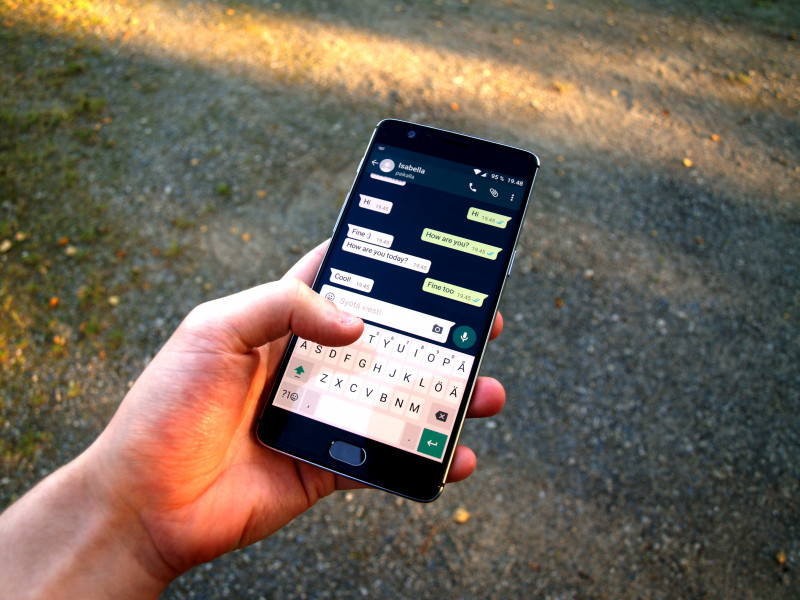
WhatsApp is a widely-used instant messaging and VoIP service owned...
Ukraine is an Eastern European country the second largest on...

Instagram is a photo and video-sharing social networking service owned...
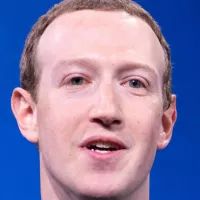
Mark Zuckerberg is an American businessman best known as the...

Donald John Trump is an American politician media personality and...
Trending

2 hours ago Mookie Betts Decides on Dodgers' White House Visit Amidst Controversy with Donald Trump.

2 hours ago Tanner Scott's Velocity, Dodgers' World Series Ambitions, and Kirk Gibson's First Pitch

2 hours ago Venus Williams Reveals Her Admiration for an ATP Legend, Igniting Tennis World Passion.
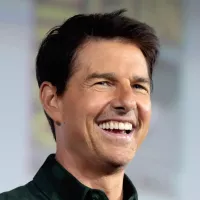
2 hours ago Tom Cruise's advice helps Hayley Atwell with social anxiety: 'Keep looking at it'.
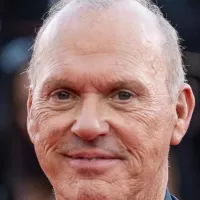
2 hours ago Michael Keaton's Batman: Catchphrase, Killer Moments, and Reboot Rescue Attempts Explored.

2 hours ago Casey Mize Shines in Debut as Tigers Beat Mariners 4-1.
Popular
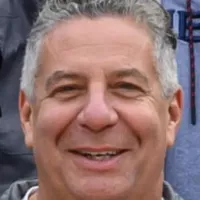
Bruce Pearl is an American college basketball coach currently head...

LeBron James nicknamed King James is a highly decorated American...
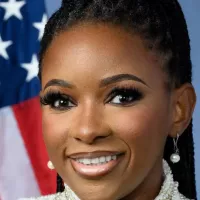
Jasmine Crockett is an American lawyer and politician currently serving...

Cristiano Ronaldo nicknamed CR is a Portuguese professional footballer widely...

Michael Jordan also known as MJ is a celebrated American...

Pamela Jo Bondi is an American attorney lobbyist and politician...
